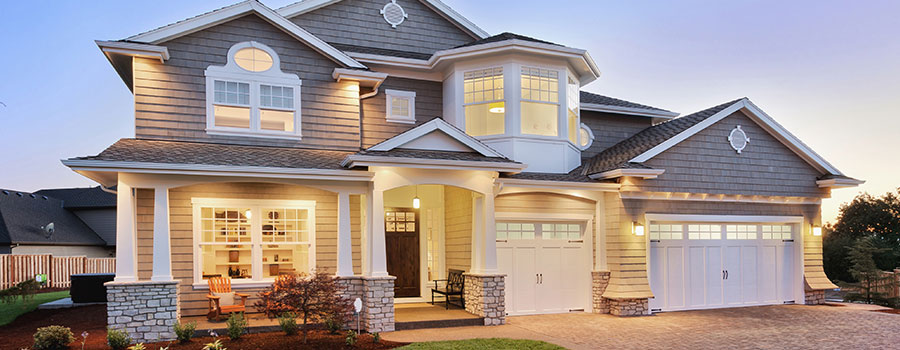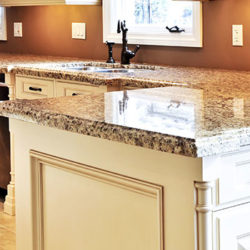Do you need additional space in your house to accommodate your expanding family? Do you have plans to add an in-law room for a loved one who is getting older? Have you outgrown your home but are unwilling to move? You need to install a home addition.
In addition to the addition being a fantastic investment, it may increase the living space in your house, change the way your house looks and feels, and raise its value.
But before you install one, here are vital factors to consider:
Have a clear objective.
Even though it’s natural to become excited about designing a home addition, remember to consider the area of your house you want to expand. Compare the section of your house to your other possibilities to determine the best course of action.
A few ways to increase the usable square footage in your house include adding an extra story, enclosing a porch, finishing an unfinished area, or even building out a portion of your home.
Consult knowledgeable home addition contractors about your alternatives to ensure that the solution that best fits your home’s design achieves the original goal of the addition.
Work with the right contractor.
If you aren’t sure where to begin, you should start by hiring the right contractor for your project. Are you wondering about the qualities of a competent home remodeler you should look out for? When selecting a contractor for your project, the following questions should be simple. Have they already completed a project of this nature?
Hiring someone without established experience in your project could be a warning sign. So, always hire an experienced professional.
Do they possess the appropriate references, insurance, and licenses? Verify if they can provide the required paperwork and prior client testimonials. You should always work with an insured company. This way, you have peace of mind because you know that in the event your home gets damaged, you can easily get compensated.
You also should pay attention to the cost that the contractor is charging. You should evaluate the value that a contractor offers you compared to the price they quote you. You’re searching for the best value, not the best price. So, always go for the contractor that offers you the best quality service at the least cost.
Although it’s a good idea, comparing bids from different contractors only makes sense when comparing apples to apples or when they demonstrate similar approaches to the project.
How long it will take to complete the project
Your contractor should give you a schedule that outlines the duration of the project before starting it. If you are uncomfortable with this timeline, talk to your contractor about it.
Some of your design or fixture choices may affect the timeline, and you may be able to choose something different to shorten the project schedule.
You should note that a project timeline is crucial if you plan to live in the house while construction is underway, as you may be sacrificing home comfort.
You should anticipate investing time in this kind of project because construction is time-consuming. Being aware of your time commitment up front is the greatest chance of establishing reasonable expectations for you and your family.
Know your property lines.
Even if your home has been expanded, you should always verify the precise boundaries of your property by consulting your property survey.
Local rules probably limit how close you can go to your neighbor’s houses, the roads, or a nearby vacant lot, so this is a vital precaution. It is beneficial to be aware of these limitations before the permitting stage of your project, but they will probably become well-known when you file for permission for your expansion. So, file it as early as possible.
Keep an eye on the building codes.
You must follow your local building codes, even if it’s your home and your money. Different codes apply to different localities, and these rules may decide whether you can build up or out your home addition.
You should conduct some research in your area before committing fully to a home addition plan, as the age of your house or its location may have an impact if you have additional regulations imposed on your household.
Aim for a seamless design.
You can start looking at your design possibilities after you clearly understand the WHY behind your home addition and are confident you can work within local codes to achieve your goals. You should first work with a professional designer to explore several ideas or conduct a comprehensive search to determine what you want.
Don’t stray too much from your existing interior decor or design. You want the extra room you’re creating to seem like it was always there.
You should note that even minor design errors can result in a sense of a sudden change from the old to the new. You should aim for a smooth design transition, just as you would with utilizing the space and ensuring it suits your objectives as part of the project.
Protect the precious items.
The intricacy of building a new room in your house can vary. Depending on the method you choose to build your home expansion, your existing household belongings will also be affected differently.
Regardless of the precautions you take to safeguard your house, it is a good idea to remove any extremely precious or irreplaceable items and store them somewhere that won’t be touched by construction during the project.
Before the process starts, tour your house and talk with your contractor about what needs to be removed or stored.
Parting shot
Adding a home addition can be an exciting moment for any homeowner, and we hope this list will help you complete your project effectively. These tips are only meant to serve as a starting point for thinking about every component that goes into a remodeling project so feel free to put your creativity into action.
As mentioned, for the best outcome in your project, ensure that the work is done by experienced and certified home addition companies McLean who will help you put up the structure and help you in making vital decisions.



